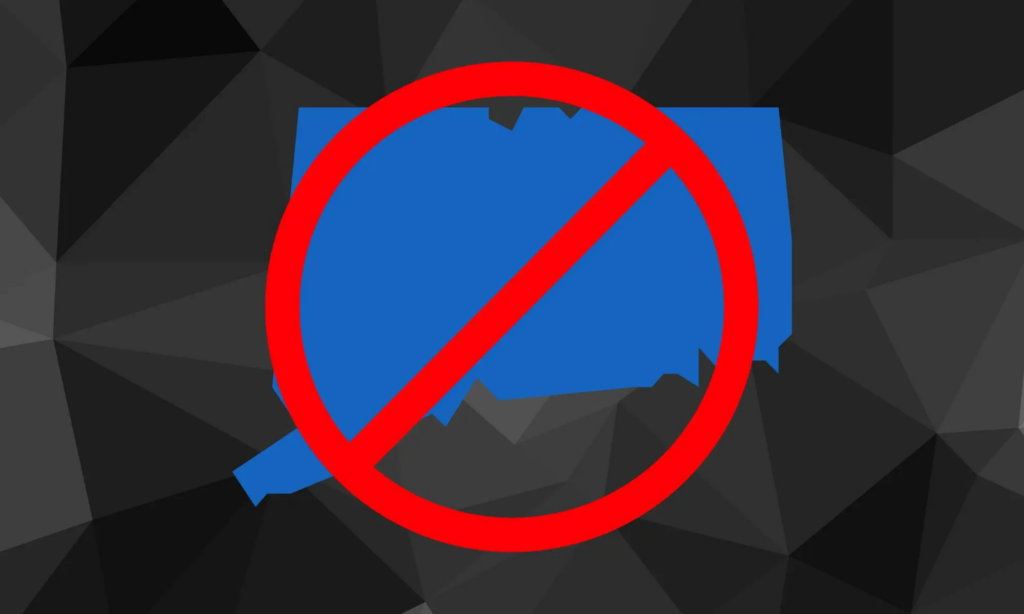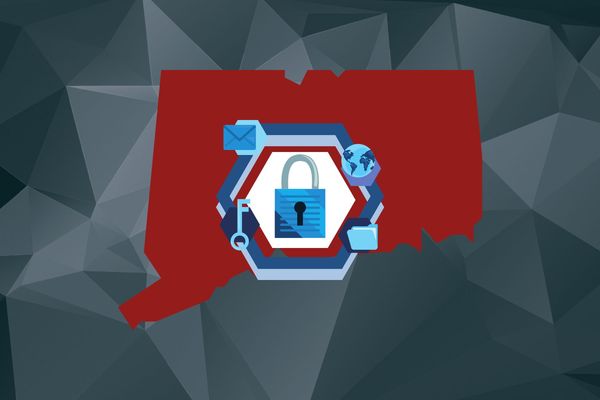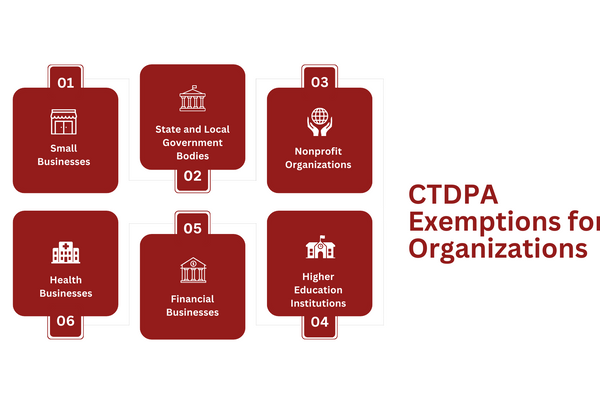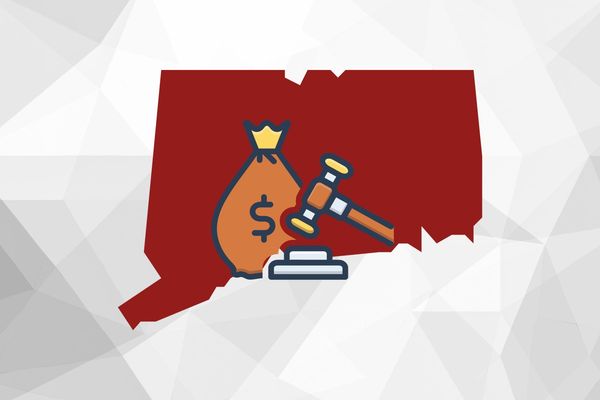
The Connecticut Data Privacy Act (CTDPA) has certain rules from which some businesses are exempted. These exemptions mean that those particular businesses do not need to abide by this specific regulation.
This article will explain these exemptions in simple terms. If you run a business, it’s important to know about them. We’ll guide you through what they mean and how they might affect you.
Let’s dive right in.
Key Takeaways
Connecticut passed a new privacy law called the CTDPA that’s kind of a big deal for businesses processing Connecticut resident data. It lays out a bunch of rules on how to handle people’s personal information and gives us more control over consumer data.
But not everyone has to follow every single rule, which makes sense. There are some exemptions for certain types of businesses and data that give them a pass on some of the requirements.
If businesses don’t follow the CTDPA rules, they can get into trouble. But don’t worry! Captain Compliance is here to help make sure your business gets it right.
Connecticut Data Privacy Act Explained

The Connecticut Data Privacy Act (CTDPA) is a law that helps protect the personal data of people in Connecticut, offering data privacy exemptions and defining the scope of data protection.
It makes businesses responsible for protecting and properly using the personal data they collect, and the law also gives consumers more control over their own data.
Governor Ned Lamont signed the CTDPA into law back on May 10, 2022. He and the legislators pushed for it because people are increasingly concerned about how their personal info gets used behind the scenes nowadays.
This Connecticut law mirrors data privacy acts like the GDPR and CCPA that other states like Colorado and Virginia, have passed too.
Businesses now also need consent to collect certain data as well. There are also data security requirements and anti-discrimination protections. It’s a big step towards data transparency and giving individuals more say in the process.
One of the big things this law does is give people data subject rights to their data. They can now:
Access their data on request.
Fix mistakes in their data.
Ask to delete their data.
Get a copy of their data to use somewhere else.
Say no to businesses selling or using their data in certain ways.
This law doesn’t apply to every business out there, though. Some organizations don’t have to abide by CTDPA’s specific rules because they are exempt.
Does the CTDPA Have Exemptions?

The CTDPA says some groups don’t have to follow all its rules. These are called exemptions. They make sense because not everyone’s the same when it comes to data privacy laws.
The main point of the CTDPA is to protect people’s personal data. But some groups, like government agencies, schools, and big financial businesses, can do things their own way and have their own regulations governing them.
Exemptions are important because they make the law more flexible. Without them, some groups would have a hard time doing their jobs. For example, researchers might not be able to study important health problems if they had to follow every single CTDPA rule.
But even with the exemptions, the main goal of the CTDPA is still there: to ensure businesses handle personal data the right way. So, if you run a business, it’s good to check out these exemptions and see if they apply to you.
CTDPA Exemptions for Organizations
The Connecticut Data Privacy Act has rules to protect people’s personal data. However, some groups and types of data don’t have to follow all these rules. Let’s look at which businesses and data types get these special rules, called exemptions.
Small Businesses
Some businesses don’t have to follow the CTDPA rules if they don’t have many consumers. If a business has data on less than 100,000 people, or if less than 25% of their sales come from data of more than 25,000 people, the CTDPA does not apply to their business.
State and Local Government Bodies
State and local government groups, like town councils or state agencies, don’t have to follow all the CTDPA rules. This helps them do their jobs without too many extra steps. Additionally, government bodies often have pre-existing regulations for their agencies to follow.
Nonprofit Organizations
Groups that work to help people and don’t make a profit, like charities, also have an exemption. This means they can focus on their main goal: helping others.
Higher Education Institutions
Colleges and universities have some special rules, too. This helps them teach students and do research without too many extra steps.
Financial Businesses
The Gramm-Leach-Bliley Act (GLBA) has its own rules for financial businesses like banks. These businesses have to keep customer data safe and tell consumers how they use their data. Because they already have these rules, they get exemptions from the CTDPA.
Health Businesses
The Health Insurance Portability and Accountability Act (HIPAA) has rules for health information. This includes data from doctors, hospitals, and health insurance businesses. HIPAA makes sure this data is kept safe and private. Because of these rules, health groups get exemptions from the CTDPA.
CTDPA Exemptions for Data
The Connecticut Data Privacy Act has rules to keep people’s personal information safe. But not every kind of data needs to follow all of these rules. Some types of information get special rules called exemptions. Let’s look at what kinds of data get these exemptions.
Protected Health Information: This is health data that is protected by the Health Insurance Portability and Accountability Act (HIPAA). It’s the kind of data you might give to a doctor or hospital.
Research Data: Research data used in medical studies also doesn’t need to follow all the CTDPA rules, but the research does have to follow other guidelines to keep people’s information secure.
Data about credit: Whether someone pays their bills on time – is protected under a different law called the Fair Credit Reporting Act. So this data gets some exemptions, too.
Driver’s Data: Things like the license number, is protected by the Driver’s Privacy Protection Act. This means it has special rules.
School Data: Report cards are covered by the Family Educational Rights and Privacy Act. So, they get exemptions from parts of the CTDPA.
Farm Credit: This is protected under the Farm Credit Act. So, it also has some unique rules.
Airline Data: Data about airline prices and routes is protected by the Airline Deregulation Act. This means it doesn’t have to follow all the CTDPA rules.
CTDPA Additional Exceptions
The Connecticut Data Privacy Act has some other rules besides the main ones. These Additional Exceptions give businesses more freedom sometimes. Let’s look at what they are!
Following Other Laws: Sometimes businesses need to follow other laws or regulations. The CTDPA says it’s fine for them to do what those other rules say. For example, if a city law tells a business it has to share information, the CTDPA won’t stop that.
Helping Law Enforcement: If a business thinks someone is breaking the law, they can work with the police.
Legal Reasons: There are times when businesses need to use data to defend themselves in court. The CTDPA allows this too.
Doing What a Consumer Asks: If a consumer asks a business for a product or service, the business can use their information to give them what they want.
Fixing Mistakes: If a business finds a mistake in its systems, it can use data to fix it. The CTDPA says this is good.
What Businesses Are Included Under the CTDPA?
The Connecticut Data Privacy Act (CTDPA) is not just for businesses. It’s for specific ones that have a certain connection with Connecticut. Let’s see which businesses need to follow this law.
Processing Connecticut Resident Data: The CTDPA is for businesses that process the data of residents in Connecticut.
Big Businesses: If a business has data of 100,000 or more consumers, they need to follow the CTDPA. But there’s a catch. This rule doesn’t count if the only reason they have the data is to complete a payment.
Selling Data: Some businesses won’t hit that 100k threshold, but they still must follow the CTDPA if at least 25,000 people’s personal data makes up over 25% of their revenue. So, even smaller operations are covered if they sell data.
Here’s something unique about the CTDPA versus other privacy laws – it doesn’t care how much money a business makes in general. The law only looks at revenue directly from data to decide if a business has to comply.
Because of this, experts are calling the CTDPA one of the most consumer-friendly privacy laws out there. It casts a wider net to protect people’s personal information, regardless of a business’s overall earnings.
Penalties for Non-Compliant Businesses That Aren’t Exempt from the CTDPA?

Connecticut’s new Data Privacy Act is serious business for businesses. Violations can lead to the Attorney General fining your business with a $5,000 fine for every little mistake. But it’s not just about the money.
The AG can also order you to knock off whatever shady data sharing you’re up to. And if you already screwed up and shared someone’s private info when you shouldn’t have? You must make it right.
Here’s another kicker: if you made bank by ignoring the rules, you might have to cough up your ill-gotten gains and not keep the profits from your sketchy behavior!
Something to note is the Attorney General will be ‘leniant’ until this year (2025). They’ll politely point out your mess-ups and give you 60 days to clean up your act, known as the right to cure. But after January 2025, those protections don’t exist anymore. So now you better be compliant or expect to start getting fined.
The number of times you broke the rules and other factors decide whether you get this grace period. So businesses better get really familiar with the dos and don’ts. Brush up on those privacy regulations and follow them. Otherwise, you’ll be paying out the nose to fix your blunders.
Closing
The Connecticut Data Privacy Act can seem pretty overwhelming to figure out. But hey, you’re not alone here! Captain Compliance has your back, offering outsourced compliance solutions tailored to your needs. We know the rules, the exceptions, and the best ways to follow them, and we provide top-notch compliance training to ensure you’re always up-to-date.
If you run a business, you’re probably wondering, “What do I do next?”. Good question. The key is making 100% sure you’re doing this right. And if you’re not positive, no worries! We can double-check for you. We can also help fix any issues so you’re ready for whatever comes next.
With Captain Compliance by your side, you can feel good knowing you are on the right track. Get in touch with us, and let’s team up to keep people’s personal info safe and make sure businesses can crush their goals.
FAQs
What is the main goal of the CTDPA?
The Connecticut Data Privacy Act (CTDPA) aims to protect the personal data of Connecticut residents. It sets rules for businesses on how to handle and use this data, giving people more control over their own information.
Unsure about the CTDPA’s objectives? Read our guide here!
Are all businesses affected by the CTDPA?
No, not all. The CTDPA mainly targets businesses that process data of a large number of Connecticut residents or those that earn a significant portion of their revenue from selling data.
Thinking of expanding your business in Connecticut? Let Captain Compliance guide you!
How does the CTDPA compare to other state privacy laws?
The CTDPA is similar to other state privacy laws, like those in Colorado and Virginia. However, each state has its unique points, and the CTDPA is known for being very consumer-friendly.
Navigating multiple state laws? Read our guide on California’s state law here!
Can businesses outside of Connecticut be affected by the CTDPA?
Yes, if a business outside Connecticut collects or processes the data of Connecticut residents, they need to follow the CTDPA.